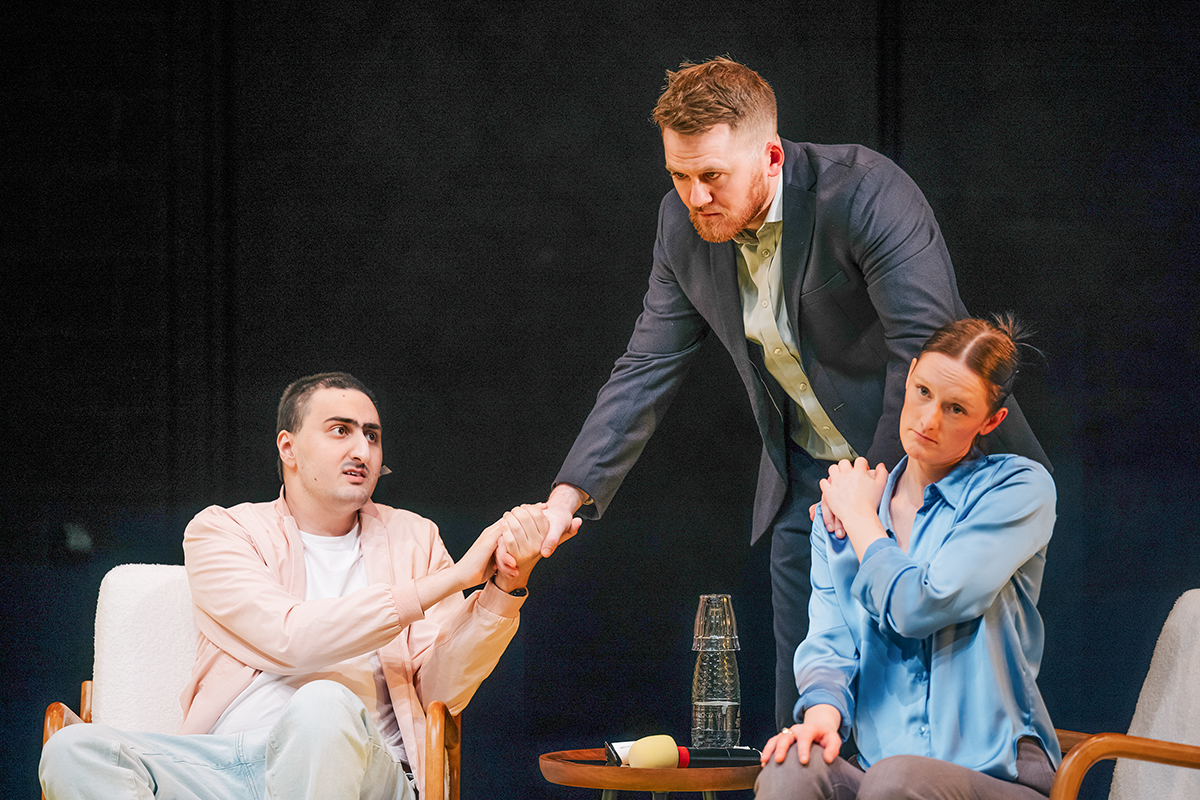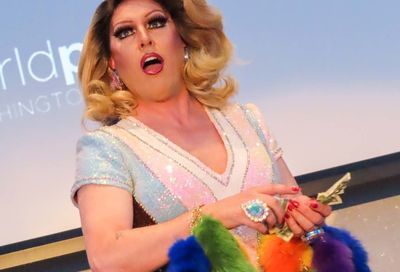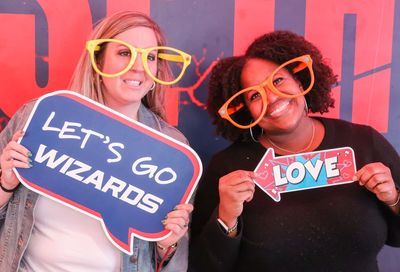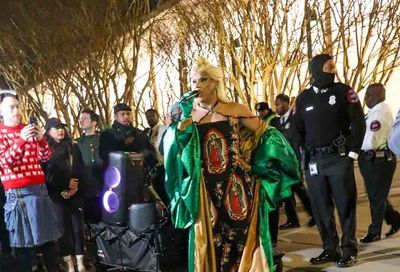‘The Nosebleed’ Review: Family Ties
Aya Ogawa's The 'Nosebleed' is intelligent and amusing, but it leaves little space for its more compelling themes.

A slightly-surreal autobiographical concept piece touching on the legacy of complicated family relationships, Aya Ogawa’s The Nosebleed (★★★☆☆) may be intelligent and amusing, but its scatter-gun approach leaves too little space for its more compelling themes.
Delivered through vignettes and four actors interchangeably playing Aya, we visit the playwright’s past and present, stopping here and there for moments that begin to build a picture of her life and how she feels about it.
There is a gradual coalescing of the exploration, with the second half of the play drawing in more closely on Aya’s attempts to connect first with her native Japan and then finally with her despairingly-distant father.
In a clever finale, she defangs his memory with sincerity and then in grand comic style. It’s an exorcism of sorts but also the cri de coeur of a person whose life has been marked by an unaccountable absence of love.
But even if the playwright, who also directs, brings this powerful theme to the fore in interesting ways, too much early energy is spent dancing through overtly-relatable situations (parenthood being predominant) and not nearly enough on developing her ideas in a way that creates a genuine hold, be it emotional or psychological.
References to her life spring up and evaporate often without offering more than glancing amusement. A prime example is her noted obsession with the reality TV show The Bachelor.

Although she makes comic hay with reenactments of the stilted behavior of the contestants, it’s never clear what the show really means to her or why she focuses on the first Black female bachelor.
The caricature of the woman’s chosen date — a certified bro — is not especially original and the time spent on his unusual family hangs pointlessly in the ether. Is this meant simply as a display of the awkwardness of white people? Without more, it is more surreal playtime than purposeful in building on her themes.
Another quandary is Ogawa’s threshold invitation to the cast and audience to share moments of failure. As the cavalcade of scenes from her life unfolds, any failures are put into the unassailable category of good intentions gone awry. But a reckoning with failure is never applied to the most pivotal person in Ogawa’s psyche and the play: her father. He clearly failed her, but what do we learn of his intentions?
Ogawa may slow down eventually to allow space to list his failures in an intriguing ritual, but this is no substitute for showing us more of this complicated man. This isn’t the play for a history lesson but, at the very least, he must have lived through some distressing and potentially damaging times.
These missing pieces become particularly glaring at the end of the play when Ogawa herself plays her father. She is absolutely superb, wholly and convincingly embodying this tragic-comic figure who has caused such a dark river of anguish in his wife and child. But it’s too brief a glimpse: he begs to be discovered in all his awful glory and his damage and demons. Ogawa was never going to write a sitcom, but her skill, wit, and humor would have made for a fascinating and entertaining dissection of this man — even assuming he forever remains frustratingly untouchable.

Such a treatment would have made better sense of her attempt to connect with Japan and would have dovetailed well with the way she uses her young son — bearer of the family genes — to deliver sudden childhood howls that seem to give voice to more than just his own outrages. And, as clever as the finale is, there would have been far more pathos to match the wit.
The four actors playing Aya do a seamless job of moving in and out of their identity, while also taking on a handful of other characters.
Out of the box, Drae Campbell (Aya 4) offers a combination of great comic timing and a clarity of intent that keeps the moments of drama intact. Another comic turn comes from Saori Tsukada (Aya 3), exuding a fascinating charisma that she dials up or down depending on need. Ashil Lee (Aya 1) and Kaili Y. Turner (Aya 2) deliver solidly on their Ayas, but as the young Aya trying to reach her father, Lee doesn’t have nearly enough to get their teeth into. Finally, as the White Guy, Cody Nickell brings enough fresh energy to the proceedings his brief visit feels like a missed opportunity.
A final quibble is an insistence on audience participation, including persistent canvassing for a show of hands on this or that. Engagement may be all the rage, but with the exception of those having the attention span of screen-addicted toddlers, it does nothing for the theatergoing experience. It’s time to trust again that there is nothing wrong — and everything right — about letting an audience sit peacefully in the dark, privately relating a play to their own lives.
There is no question that Aya Ogawa has something powerful to say about the way a parent can live on in one’s inner life, scary and impervious. If this play has effectively cleared her throat, she seems poised to say more.
The Nosebleed runs through April 23 at Woolly Mammoth, 621 D St. NW. Tickets are $30 to $70 with Pay What You Will pricing at select performances. Call 202-393-3939 or visit www.woollymammoth.net.
Support Metro Weekly’s Journalism
These are challenging times for news organizations. And yet it’s crucial we stay active and provide vital resources and information to both our local readers and the world. So won’t you please take a moment and consider supporting Metro Weekly with a membership? For as little as $5 a month, you can help ensure Metro Weekly magazine and MetroWeekly.com remain free, viable resources as we provide the best, most diverse, culturally-resonant LGBTQ coverage in both the D.C. region and around the world. Memberships come with exclusive perks and discounts, your own personal digital delivery of each week’s magazine (and an archive), access to our Member's Lounge when it launches this fall, and exclusive members-only items like Metro Weekly Membership Mugs and Tote Bags! Check out all our membership levels here and please join us today!
























You must be logged in to post a comment.